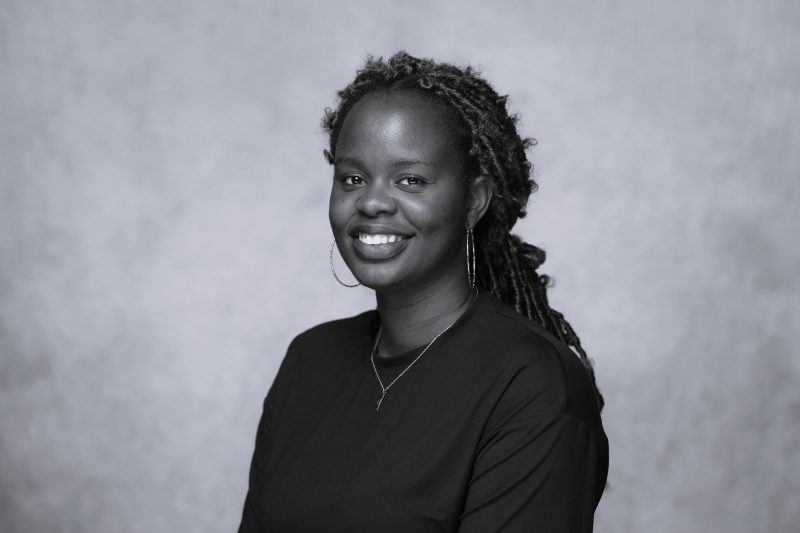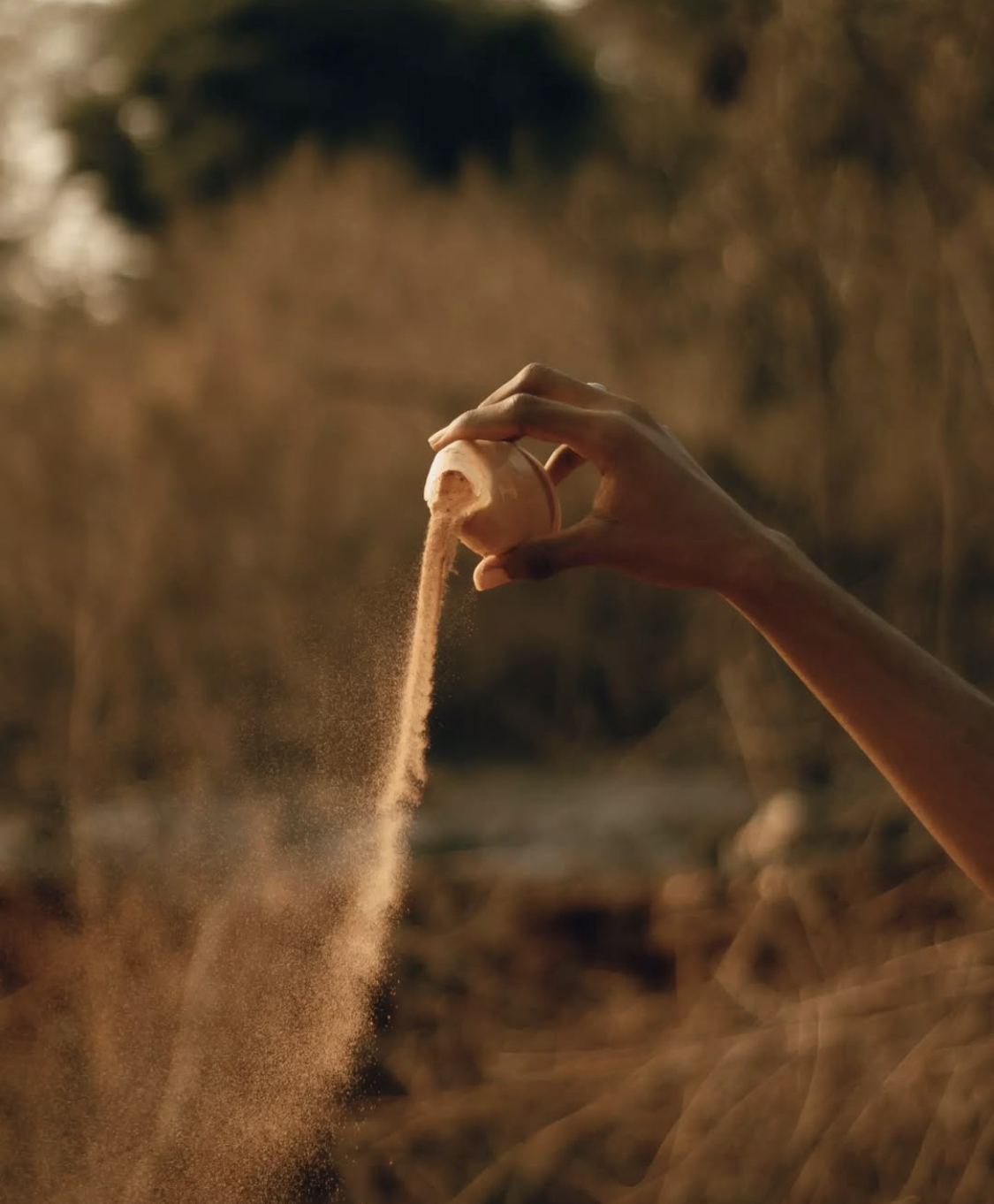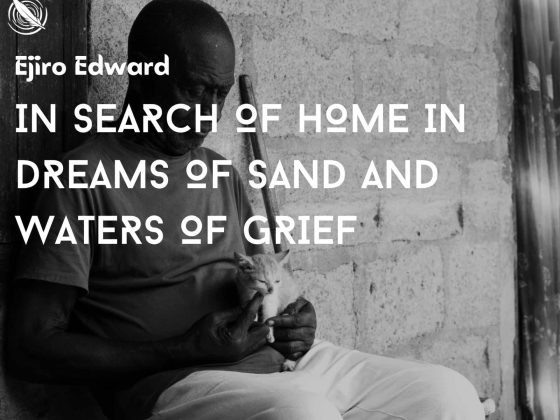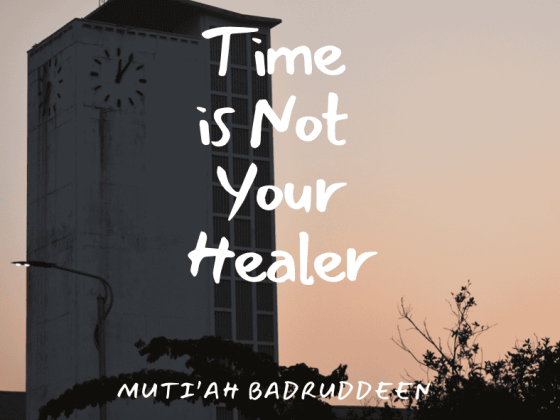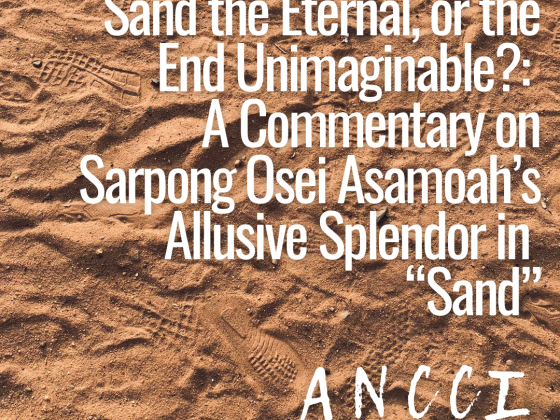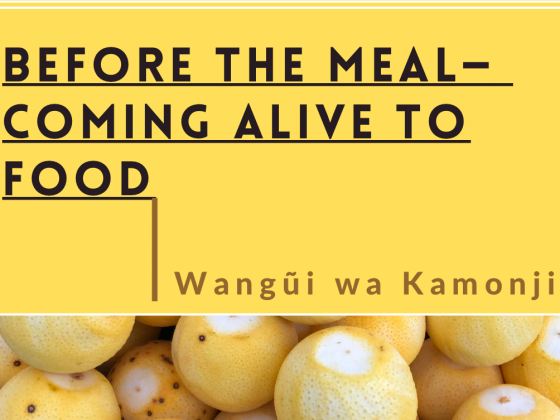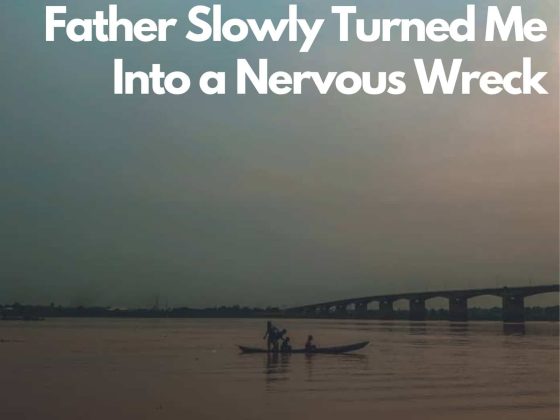(cover photograph direction: Victor Akhere)
i. Sixth Sense or Does your Mother Know?
My clearest memory of you is from the braider shop. It’s the most living form of you I remember. I’m unsure if the occasion was a wedding, a funeral, or a vacation visit to the family house in Academy, Ibadan. Gold synthetic hair forming into long twist-braids falls from your head through the braider’s hands. Your voice is nasal. I think it is nasal, not in a pretentious way, not in a high-pitched South American typical Barbie accent, but in a last-born-of-the-family-sharp-mouthed-Ibadan-babe kind of way. It’s your voice I remember when I think of you. Your screech when the braider dipped your hair in a seething bowl of water; how the rising steam compelled you to call for your mummy; how you said your mom would know, wherever she was, if something bad, like being scalded by the hot water, should happen to you. Is this true? Does your mother know why I am summoning you now? Why were you at the braider shop? Was it a wedding, a funeral, or a vacation?
ii. Summoning
The last time I saw you was in 2014, in Ibadan. It’s ten years now, and I’ve lost many of the details of that encounter. I don’t recall what you wore or the colour of your veil. I cannot remember the name of the school where you took me to sit for my exam. My memories escape me like clever fishes from a fisher’s bait, but still, you hook me. Despite the passage of time, you remain/ed with me. You stay/ed. Like today, you sit behind me on a motorcycle, laughing at my poor attempt to speak Yoruba. You with your chipped central incisor; you with your diastema; you with your smile line contouring your cheeks into a half-moon; you with your nose bridge marooning in the sea of your almond-shaped brown eyes; you with your thin lips stretching into a petite smile like your body; you with your nightingale sing-song voice; you in my childhood kitchen frying heavy cuts of yam, and the ritual of you gently easing water over your black skin like you are a temple, like you are cleansing the temple of you before worship; you spreading a mat towards the qibla in the corner of the guest room between the brown wardrobe and black bed frame; you with your hands crisscrossed against your chest; you with folded knees; you with cupped palms; you with a tasbih circling between your thumb and index tips; you; you; you!
iii. I am part bird, but you are full wings. You lay bare before the doctor.
You are open-cut. You fibroid fight, brave pain at the hospital.
You are part flesh and wound; part stitches and staples.
You are part blood and pus; part pain again.
You breathe. You breathe deep.
You deep sleep. You bird be.
You full wings.
You fly.
Off.
iv. Becoming Film
The world stops when a body drowns in the sea of death. You know this in the greyness of things: the world, climaxed, succumbs to the tingling sensation of stillness. Silence is the earsplitting voice behind ears saying, “This is the path (of grief), walk therein.” These invisible atoms of absence collide with-in you, it is palpable–you can touch it, and your skin and vellus hair become a field of elephant grass bending under the weight of the wind, the weight of nothing but absence. The world stops. Music is louder but distant. Food travels the path of your throat, but your stomach remains void. There are people all around—the gathering of slippers, a cacophony of breaking voices in the living room, a phone call, a sighing woman, someone eating or someone wailing—still, you feel like a pin dropped in the ocean, in this grueling silence.
I am (also) that pin adrift in the ocean, because the world has stopped, though life continues. The world where there is us—you and me—has stopped. It has become a movie with two characters: me and my memories [of you].
v. The day you leave here, life keeps on
going, pretending everything’s the same.
You’re waiting for me to find
you on my feed: blurry, shrouded
in white like a mummy. I call mother
to tell her I’m lost, beg her to find me.
She responds with a prayer
in our native tongue. The kind you say
when something terrible has happened,
you can’t comprehend so you say a prayer.
My father believes those who lived
the day and have gone with the night
stay awake to watch those left behind.
But mother believes dead men
dream of stars when they sleep,
leave us to this play called life.
…
I do not trust those who have gone ahead
to look behind like my father does
….
The day you leave here life keeps on going
I read my poems to a roomful of people pretending
everything’s the same the day you leave here.
vi. How long is forever?
To Americans, there are many versions of my name. At a party, someone calls me Debbie, at church, another says Demi. There are many versions of your name, too. Not in the same mispronounced way as mine, but a different kind of conception. Titilope. Yoruba etymology ties a continued praise to your name–eternal and forever. It is atypical for the last child of seven to be named like a child born after many years of waiting. To be African is to be spiritual about names. It is to consider names as an expression of destiny, a prophecy of fate, a metaphor of/for existence. I later learned that your name is a metaphor for your mother’s victory after nine months of fighting for herself and you, an unplanned product of failed contraception, from dying. Your name is the acceptance of your beautiful soul emerging into a tainted world. Your name is a summation of all things, like Yorubas’ O ye Olórun, God knows best, or Christians’ give thanks to God in all things. But Islam was your faith. Is Titilope a synonym for Maa Shallah or Allahu ‘alam? Forever praise? Eternal praise? Acceptance? Submission? Forever hope? God-knows-forever? How long is forever?
vii. Today, I asked mother if she’s fine.
Or angry. She says no. It’s annoying.
I don’t know if she means death,
or losing you. She retells the story
of you at fifteen. Twenty-two. Thirty.
She doesn’t cry, but I can tell
losing you hurts like a finger
trapped between the door and its rest.
Grief has known us more than we remember—
like a lover knows its craved body, like a magnet
pulls its second self—still, it remains august.
On the other end, silence surrenders to sighs.
viii. Ambiguous Loss
[Ambiguous] Meaning: inexplicable; capable of being understood in two or more possible senses or ways.
[Loss] Meaning: the instance of losing someone or something; uncertain as to how to proceed, as in at a loss.
[Ambiguous Loss] Meaning: inexplicable; absence of a singular way to describe or comprehend losing someone or something such that one becomes at a loss for how to grieve or how to move on. To leave home is to be in a continuous state of ambiguous loss. It is to become part bird, part empty nest. To leave home is to become a strand of thread torn from a tapestry of history, of heritage, of a familiar kind of existence. It is a second coming of age. A different type of reformation where everything is the same, but nothing is the same.
ix. The
thing about leaving home is the moon
is the same but death is
not—it’s either looming or rude. It’s two-
dimensional.
x. I Call Upon Your Name
I call upon your name. I call upon your name in this newly-formed existence, where you have become memory’s relative. I consider taking flowers to a stranger’s grave as a token of my grief, but I am not brave enough. I am not brave enough, so I call upon your name—forever praise; give thanks to God in all things—a kind of meaning to find meaning in your death. To find sensibility in this marketplace world where you no longer trade; where you have packed up and headed home, but I am still here. I am still here, and I am not brave enough, so I call upon your name to find meaning:
xi. when your birthday comes
is when the month wraps
as if November knew
it’d be a holy white fabric
folding up with you.
It’s your birthday today.
I sleep with my palms open
as a crucifix for letting go.
For Aunt Titilope: XI. XXVI. MCMLXXXV – XI. XXII. MMXXIV (11.26. 1985 – 11.22.2024)
